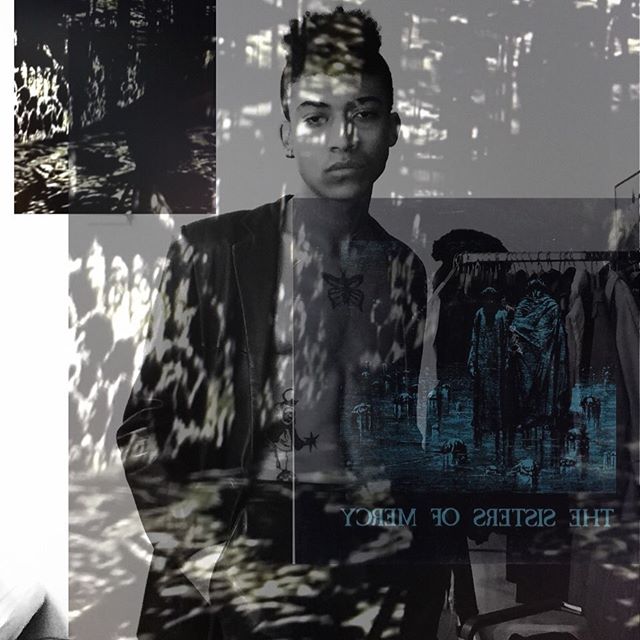
The history of the emergence of punk does not form a clear line, no clear place of origin, no person who could be called the first punk. Nevertheless, we have associations, images, bands and people in mind that come to mind first. And of course it is an individual question, but also a structural one. The events of the last few weeks show what should have been known for a long time: Black people are treated differently, are murdered because racist structures allow it, are not heard when they express their pain and anger. In the short documentary The Very Black History of Punk Music, The 1865 guitarist Sacha Jenkins says, "If you're black, you're always punk rock. You are always a target.”
Expressing pain and anger, naming social problems as such, being perceived as "different" by the majority of society - that's punk!
So how is it that those images, bands and associations with punk are so often white and not black? The punk scene is predominantly male as well as white , but there were and are many talented people who are black or non-male. The structures that need to be questioned and redefined also affect us, especially us if we understand punk as an anti-racist, rebellious movement. And that means giving people a stage, listening to their anger, celebrating their energy with them, taking their pain seriously. If our white male punk icons can be angry, loud, inflexible and rowdy, and we love them for exactly that - why don't we feel the same about people who have so many more reasons to be angry? The structural problem also became clear when I started writing this text, the research was a lot more difficult than usual. Because even if punk is originally made up of rock and blues, i.e. music genres created by black musicians, the history of punk in the Internet portrayed from a white perspective. This basically means that Black people's music has been used as inspiration, enriched, but not shared the stage equally - after all, there are no fewer Black punk bands than white ones.
So what can be done about this imbalance? We recommend watching the documentary "Afro-Punk" by James Spooner first to learn more about the background. The film was the basis for the festival of the same name, which has since taken place in Brooklyn, Atlanta, London, Paris and Johannesburg and gives black artists a space. Then the next step can be to look at your own playlists, add to them, make them more diverse. Just google something more specific or start a conversation with other punk listeners. For example, I also asked a friend with whom I've often talked about music if he could recommend black punk bands to me.
By the way, he can be seen in the photo, on Instagram his name is narcisseesttimid- follow him for content about analogue photography, fashion and politics.
Listening recommendations for you: Death, Bad Brains, Radkey, Ho99o9, Big Joanie, TCIYF, The OBGMS, Black Pantera, Fuck U Pay Us, Rebelmatic, The Txlips, Red Arkade, Pure Hell.


Comments
“An intriguing discussion is definitely worth comment. I believe that you ought to write more about this issue, it may not be a taboo subject but typically people don’t discuss these subjects. To the next! Cheers!!”
נערות ליווי בהרצליה
gder4563